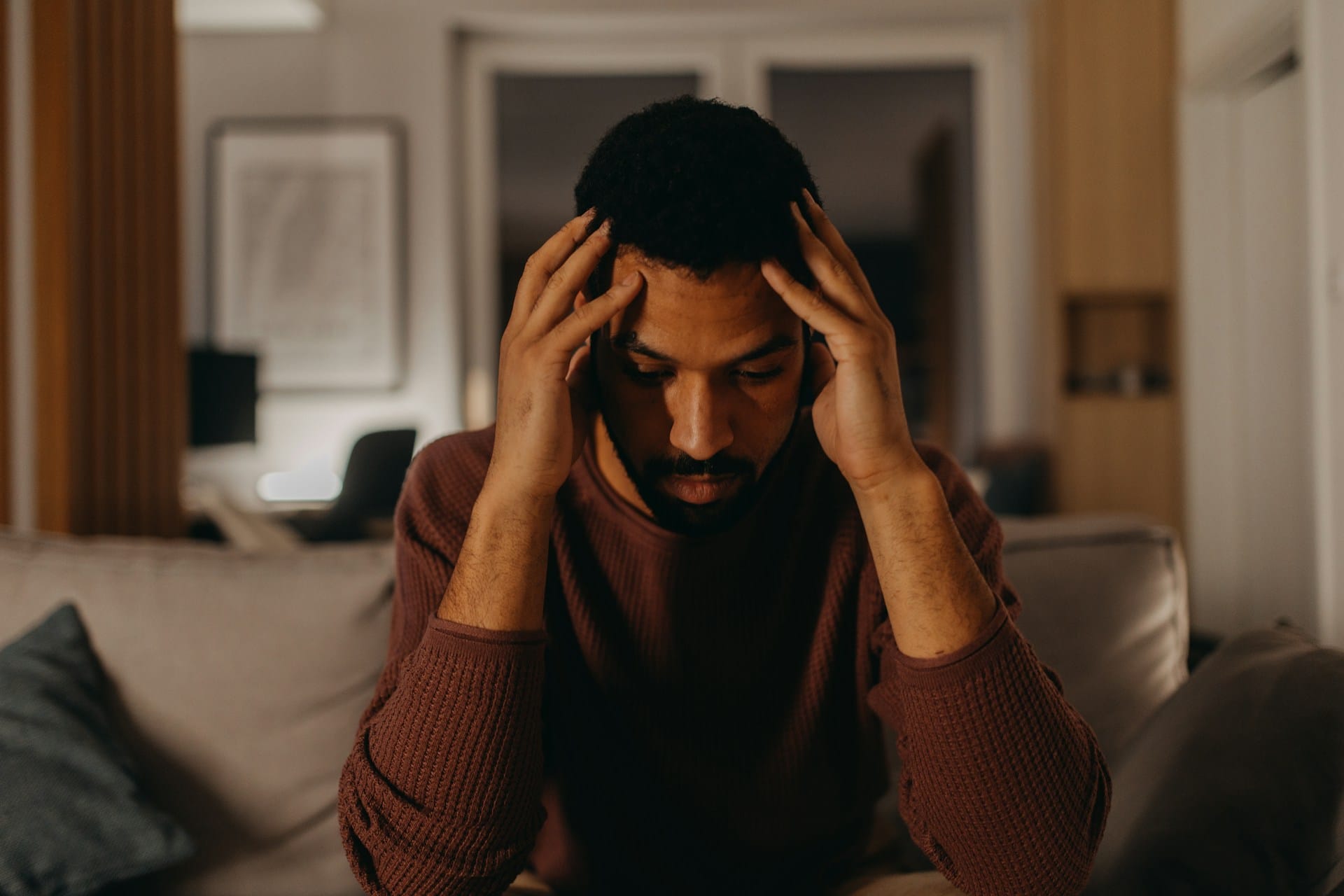Has 2020 been the year of loneliness? Not for decades have we in the United States experienced what it means to quarantine from other people. Spring of 2020 found us cut off from each other and mandated lockdowns and shelter in place orders happening around the country. Since then, we’ve struggled to find the balance between public health and psychological well-being.
 The unknowns of life during a pandemic, disagreements over the best steps to take for safety, wanting life to go back to normal, and during all of this, feeling cut off from other people, causes stress and heartache, and can lead to anxiety and depression.
The unknowns of life during a pandemic, disagreements over the best steps to take for safety, wanting life to go back to normal, and during all of this, feeling cut off from other people, causes stress and heartache, and can lead to anxiety and depression.
One hospital called social isolation the “silent pandemic” of 2020. The World Health Organization has reported that loneliness is as dangerous as smoking 15 cigarettes a day, and is linked to increased rates of heart attack, stroke, anxiety, depression, and suicide.
No matter how necessary social distancing might be, it’s crucial to acknowledge the cost and side effects of being cut off from other people, especially if you live alone or lack a supportive family in your household.
If you’re asking how to stop feeling lonely, or what is the cure for loneliness, be encouraged. Loneliness and isolation are real and can cause problems, but there are ways to cope. The smallest of connections with others can make a big difference. Research suggests that we need only three to five friends to experience the benefits of ongoing social connectedness.
Consider who your closest friends and family members are. Have you stayed in touch with them? Friendships take effort to cultivate. One of the problems with social media, although it can help cultivate community, is that halfhearted scrolling and impersonal liking can replace one-on-one conversation and meaningful conversation, which is where most of the benefits of social connection are derived. Make sure that your digital connection is as high-quality as possible to reap the benefits of community.
If you’re struggling with anxiety and depression due to social isolation, don’t feel ashamed—many other people feel that way too. It’s important to talk to someone if you are having ongoing mental health struggles. Laguna Christian Counseling is here to provide support and guidance as you navigate these challenges.
Christian counseling for depression, anxiety, or loneliness, can be in-person or virtual and can help you cope with feelings of being cut off from others during this stressful time. Not only the therapeutic process itself but also connecting with another human being who cares about what you’re going through can be an invaluable contribution to your health and wellbeing.
Frequently Asked Questions About Loneliness and Isolation
Isolation was a problem before 2020, but it’s become even more of a prevalent issue since then. In 2018, one study found that almost half of American adults feel alone.
What is the difference between isolation and loneliness?
With isolation, you’re physically alone, and with loneliness, you are emotionally affected by feeling alone. You can be lonely even if you’re not isolated, and you can be isolated without being conscious of loneliness – but obviously, the two often go hand in hand.

Dealing with loneliness can feel impossible. You might not feel cut off from other people if your circumstances were different, but sometimes circumstances can’t be helped. Whether or not your situation changes, counseling can help you to shift your response and cope with isolation in a positive way.
What are the main causes of loneliness?
Verywell Mind outlines some of the risk factors:
- Physical isolation.
- Moving to a new area.
- Divorce.
- Death of a loved one.
- Depression.
- Low self-esteem.
Loneliness doesn’t always have a direct or obvious cause, but if you’ve experienced changes, loss, or upheaval lately (or if you’ve simply experienced 2020), you might be more prone to struggling with it.
Are there any warning signs that I’m becoming lonely?
According to Healthline, some common signs often accompany loneliness, including:
- Binge-watching shows or movies.
- Increased shopping.
- Feeling aches and pains, fogginess, or lack of focus, and/or getting sick more frequently.
- Having less energy or appetite.
- Having sleep problems.
- Craving physical warmth.
- Feeling hopeless, worthless, anxious, and/or restless.
These signs show that being lonely can affect your wellbeing in many ways, including physically, mentally, and behaviorally.
Feeling sad and lonely all the time is also a red flag for serious depression. If you have been feeling down, unmotivated, and discouraged for months, please don’t take that lightly. Depression is a real and treatable mental health condition and one that should be addressed. Contact a counselor today.
How can I cope with loneliness?
 There are practical ways to cope that range from making the best of your current situation, to taking steps to increase your connections with others. It is possible to manage your level of loneliness, even if your situation doesn’t immediately change.
There are practical ways to cope that range from making the best of your current situation, to taking steps to increase your connections with others. It is possible to manage your level of loneliness, even if your situation doesn’t immediately change.
Sometimes, addressing other issues adjacent to the loneliness issue can help – for example, improving your daily routine, taking walks, spending less time on social media, addressing anxiety or depression, eating healthier, etc. Improving your mental health can help you cope with feelings of loneliness in a healthier way.
But there are also ways to address the loneliness issue head-on. Let’s discuss practical steps you can take to manage loneliness and/or social isolation in the healthiest way possible.
Practical Steps for Coping with Loneliness
When you feel alone and notice some of the red flags of loneliness, it’s not a small thing to just brush off. It’s okay to acknowledge how you’re feeling, and it’s healthy to prioritize addressing it.
Remember, success isn’t wrapped up in individualism. Although Western culture often prioritizes the individual, in the end, even if you have the perfect house, car, job, and daily routine, your life isn’t complete without connections to other people.
God created us to live in community with others. Genesis 2:18 says it is not good for man to be alone. In that setting, God created Eve to be a companion for Adam. But whether you’re married, single, young, old, or whatever your situation, you need other people, and they need you.
When you’re struggling with loneliness and limited in the ways you can socialize, here are some steps you can take:
Connect with your faith
No matter how many people are in your life, God is always there. This isn’t a platitude, and faith isn’t a quick fix for feelings of sadness, but don’t discount asking God for help, “casting all your burdens on him, because he cares for you” (1 Peter 5:7). Ask other Christians to pray for you as well.
Make the most of small connections
Most of us encounter other people in our daily routine, whether it’s the cashier at the grocery store or someone we pass on the sidewalk. If you feel comfortable, say hello, and make eye contact, or ask them about their day.
 Barbara Frederickson, a psychologist who researches emotions and relationships, coined the term “positivity resonance,” which means even a brief moment of mutual positive emotions results in biochemical and behavioral synchrony (Psychology Today). In other words, there’s a benefit to any positive connection with someone, so don’t overlook that small talk we often scorn!
Barbara Frederickson, a psychologist who researches emotions and relationships, coined the term “positivity resonance,” which means even a brief moment of mutual positive emotions results in biochemical and behavioral synchrony (Psychology Today). In other words, there’s a benefit to any positive connection with someone, so don’t overlook that small talk we often scorn!
Get outside
How can getting outside help with loneliness? Well, being in nature reduces stress, anxiety, and depression, and exercise also has a range of positive benefits, as well. But beyond that, getting out of your house can help you feel more connected to the outside world, even if you aren’t having direct interactions with other people.
Focus on small-scale virtual connections
Follow fewer people if you can and interact with them more often. Personal comments and messages are better than likes and shares. Video chatting is better than texting. Apps are designed to keep us distracted and scrolling constantly, but that’s not what’s going to foster real and valuable human connection.
Find a virtual community
Do you have a niche hobby or interest? Chances are there’s a virtual community connected to it. You can make online friends based on this particular interest. (Please be safe doing so, and parents should always monitor children’s and teen’s interactions online.)
Christian Counseling During Times of Isolation
Although loneliness is not a diagnosable mental health condition, it’s a perfectly adequate reason to seek individual Christian counseling. Receiving support during times you’re struggling can help you make it through, grow, and achieve stronger mental health.
Laguna Christian counseling provides a supportive context for you to discuss feelings of loneliness, as well as address any mental health issues like anxiety or depression that can exacerbate loneliness.
Your Christian counselor can provide you with compassionate support, work to understand your situation and any adjacent issues, and suggest coping mechanisms to manage this time in your life and connect with God and others. Counseling can also help you change maladaptive thinking patterns that can act as a kind of self-fulfilling prophecy for loneliness.
If you’re feeling alone, don’t stay stuck there. Call us today at (949) 386-7182 or browse our online directory of counselors. Your first session is guaranteed risk-free, and we offer both in-person and virtual sessions. Contact us today.
Resources:
https://www.myharrisregional.com/news/social-isolation-and-loneliness-the-silent-pandemic
https://www.scientificamerican.com/article/how-to-prevent-loneliness-in-a-time-of-social-distancing/
https://time.com/3748090/friends-social-health/
https://www.apa.org/monitor/2019/05/ce-corner-isolation
https://www.verywellmind.com/loneliness-causes-effects-and-treatments-2795749
https://www.healthline.com/health/mental-health/chronic-loneliness
https://www.psychologytoday.com/us/blog/flourish-and-thrive/201907/5-ways-add-more-moments-social-connection-your-life
Photos:
“Walking alone on the beach”, Courtesy of Saksham Gangwar, Unsplash.com, CC0 License; “Standing Alone on the Rocks”, Courtesy of Abhishek Babaria, Unsplash.com, CC0 License; “Walking Alone on the Beach”, Courtesy of Ryan Ng, Unsplash.com, CC0 License; “Sitting Alone on the Beach”, Courtesy of Nick Torontali, Unsplash.com, CC0 License
- Kate Motaung: Curator
Kate Motaung is the Senior Writer, Editor, and Content Manager for a multi-state company. She is the author of several books including Letters to Grief, 101 Prayers for Comfort in Difficult Times, and A Place to Land: A Story of Longing and Belonging...
DISCLAIMER: THIS ARTICLE DOES NOT PROVIDE MEDICAL ADVICE
Articles are intended for informational purposes only and do not constitute medical advice; the content is not intended to be a substitute for professional medical advice, diagnosis, or treatment. All opinions expressed by authors and quoted sources are their own and do not necessarily reflect the opinions of the editors, publishers or editorial boards of Stone Oak Christian Counseling. This website does not recommend or endorse any specific tests, physicians, products, procedures, opinions, or other information that may be mentioned on the Site. Reliance on any information provided by this website is solely at your own risk.





